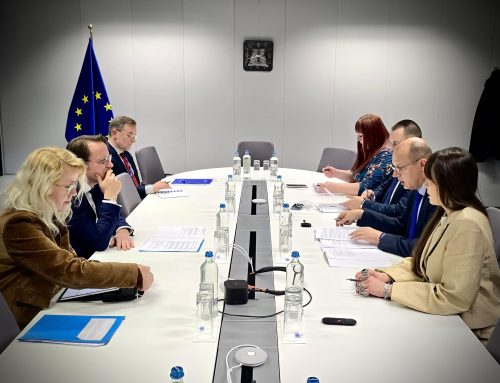25 local governments will improve their infrastructure after the agreement on investment in water supply was signed by the European Investment Bank (EIB) Manager for Serbia Ana Solecki and Director of the Public Investment Management Office Marko Blagojević. Of the 50 million euros, 10 are donations of eight EU members, while 40 are loans to the EIB on favorable terms.
Head of the EU Delegation to Serbia, Ambassador Sem Fabrizi estimates that water quality is crucial for the population of Serbia and is part of environmental reforms on the way to EU membership.
“The significant contribution of the European Union is that the enlargement process is focused on very concrete projects. Efficient supply of water and new sewage networks are obvious results of environmental commitment and actions taken by Serbia.” The expansion in its basis has a better everyday life of citizens, and this is the basic message of #EUzaTebe campaign,” says Ambassador Fabrizi.
Serbian Prime Minister Ana Brnabić thanked the donation to all countries, especially Italy and Poland, whose donation is individually largest.
“We live in times of climate change and water is one of the most important resources that we are wasting because of the losses in the water supply network in some local governments and over 70%.” The improvement of the water supply system is also important because of the sustainable operation of public companies because it will eliminate the loss”, says the Prime Minister.
Director of the Western Balkans EIB Office, Dubravka Negre, says that the donation of eight EU countries of 10 million euros is the largest ever given to the Western Balkans.
“Credit and donation will provide water supply systems for around 600,000 inhabitants, this is not the only EIB project in Serbia, we finance 300 projects, including Corridor 10, medical centers in Belgrade, Nis, Novi Sad, research and development, small and medium enterprises”, explains Negre.
Using money from EU and EIB members, asbestos pipes will be replaced, Blagojević explained, adding that automatic management will be introduced, and the established networks will be sufficient to supply in the next few decades.




